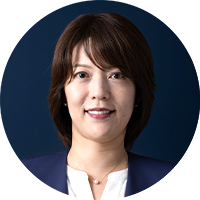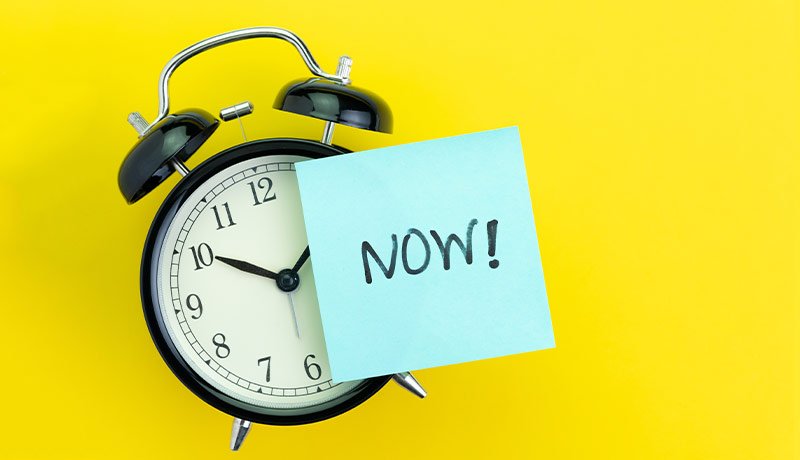Coach's VIEW is a business column authored by executive coaches in COACH A, aimed at providing valuable insights and effective approaches for leveraging coaching to foster organizational and leadership development. The column draws on the latest coaching trends and data, as well as insights from notable global publications on coaching.
The Age Excuse - If not Now, When?

January 23, 2023

"I am still young."
"I'm too old."
What follows after these phrases is often negative. I have heard these phrases many times and have said to myself.
Lately, I began to ponder what timescale people were assuming when they used these phrases. Where do they define young about themselves in terms of where they are in their life? Where do they compare their age to being too old? What is the point of using these terms? These questions came up in my mind by hearing these phrases so often from my clients.
We Are the Same Age
Gary, who was appointed as an executive officer at a company where high turnover was a critical issue due to the top-down organizational culture, said this when we were discussing goal setting.
"I've just become an executive officer and I'm still young, so I think I'll start by respecting the president's vision and working well with him. I will gradually understand the organizational structure. The other board members also have their own ideas, therefore, it is not easy for me to change the organizational culture just by going out on a limb and changing things."
"I am still young" means he is trying to make small changes, step by step.
James, my client, was a director of a large corporation with its long history, where the directors were highly committed to their responsible areas where they had an implicit agreement not to intrude on each other's territory. Given that situation, he began working on a coaching project in an attempt to break through the stagnation of interdepartmental collaboration in order to generate new business challenges. He shared with me his resistance to the initiatives of this organizational transformation.
"I am already old, so I have my own style, in a sense. I don't feel comfortable with the term 'change,' even though it is called 'organizational transformation'. I have already gained a certain amount of successful results in the past."
"I am old now". Does it imply that he is too old to change himself?
These two coaching cases made me realize that these two looked similar and both were 57 years old. Why did one client say, "I'm still young" and the other said, "I'm too old", even though they were both 57 years old? Does age have anything to do with the issues they are facing?
The Age Excuse
As we continued the session, I noticed a similarity between Gary and James' cases. It seemed to me that both of them knew what they needed to face and what challenges to take on, but they kept saying, "I'm too young" or " I am too old" as excuses to avoid their challenges.
Is age a fundamental obstacle?
Not really, just excuses.
"I won't do it now because I'm still young."
"I'm too old, so I won't do it now."
Behind Gary saying, "I'm still young, so I won't do it now" was his hesitation and anxiety about confronting people whose careers were older than his. He was also under pressure because he had been appointed at a young age, something that had never happened in the past, made him react to his "youthfulness" in some way.
On the other hand, behind James saying "I'm too old," he was aware that he did not have enough energy to make new changes on his own. He was shy and reserved about calling on someone else to change the way he used to do and to get involved. Age is simply an excuse to justify putting things off.
Avoiding the Now
"Choosing not to do it right now" is one option. But what is the reason for choosing it? Are you evasive for a reason?
Corporations survive and grow beyond our age, and they operate on the premise that they will continue to do so. If each one of us in the organization does not face what we need to face and choose what we have to do now, the organization will miss the opportunity for transformation. The same is true not only for organizations, but also for our own lives. When age becomes an excuse, how do we measure the span of our own lives?
We do not run away from the "now" but challenge ourselves to do the best in the present. We dwell in the present, where young/old is meaningless. There is no early/late time to start something. And if we want to change, we can always change. It all depends on ourselves.
I started golf, drumming, and English conversation this year. I didn't want to be influenced by the thought, "It's too late to start now, I'm too old," or "I still have time, maybe I'll start next year," but I didn't want to miss the opportunity to do something new now. I thought, "If I am going to do something, I don't want to miss out on it now. That is the starting point for self-transformation.
The new year has arrived. What shall we start now?
*Regardless of profit, non-profit or intranet, secondary use such as copying, diversion, selling etc. is prohibited without permission.
Language: Japanese
